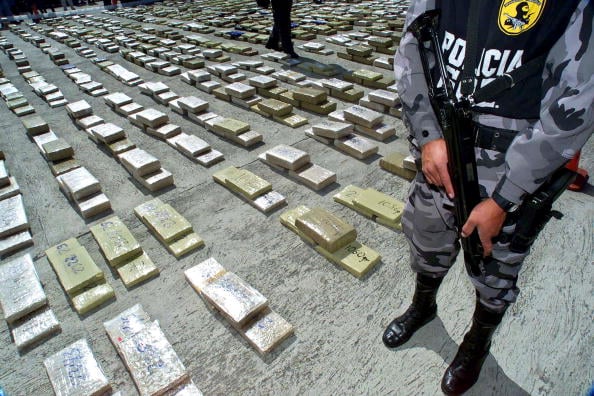
Martin Bernetti/Getty Images
The United States is in the midst of a
marijuana legalization revolution. Four states and the nation’s capital city
have opened up the once-feared black markets and made marijuana available for legal purchase by most of the adult population. There is still one big glaring issue, however: a very large, international governing organization that could try to pull the plug on the entire thing.
Surprisingly, it’s not the DEA, FBI, or White House. Although marijuana is
still a Schedule I drug under federal law (and federal law generally trumps state law), the DoJ issued a memorandum in 2013 that effectively made a deal with states. As long as they “establish strict regulatory schemes that protect the eight federal interests identified in the Department’s guidance,” then the federal government will defer “its right to challenge their legalization laws at this time.”
It’s the United Nations that could rain on the legal-weed parade. The “look the other way mentality” offered by the DoJ is not in line with international drug laws, and some people at the U.N. have decided to throw around their weight a little bit.
“I don’t see how (the new laws) can be compatible with existing conventions,” Yury Fedotov, executive director of the United Nations Office on Drugs and Crime (UNODC), told reporters late last year,
per Reuters. The convention Fedotov is talking about is the
1961 Single Convention on Narcotic Drugs, which, among other things, attempts to relegate marijuana to strictly medical or scientific use. UNODC monitors compliance with the convention.
But if you’re like most Americans, then you are probably not too worried about how the U.N. feels about marijuana legalization in the United States.
According to Gallup, 58% of Americans now support legalization. Besides,
despite a fairly strong image, many Americans feel like the U.S. is outside of the reach of the U.N. on mostly domestic issues like drug policy. There’s even precedent for a U.N. member nation bucking the convention, as
Uruguay legalized cannabis in 2013.
So, what does it really mean if the U.S. is technically violating international drug law? Does it mean anything at all, and should anyone actually care?
What it mainly comes down to, as it does internally within the United States, is a simple look at the costs and benefits. There really isn’t anything that the U.N. can do to stop states within the U.S. from legalizing marijuana, and there really isn’t any reason why the U.N. would want to spend resources policing it. It’s just like how the federal government under the Obama administration has opted to allow states to self-police and implement their own legal markets, instead of expending the likely billions it would take to enforce the current Schedule I classification of cannabis.
This is truly the biggest point in the whole argument. From an economic standpoint, it doesn’t make a lot of sense for the DEA, DoJ, or U.N. to spend time, money, and manpower to fight back against something that doesn’t provide much benefit. Not only that, but the political toll that the U.N. would likely have to suffer as a result would probably be extremely high if the body chose to engage in sanctions or some other kind of punitive measure.
If there’s one thing that truly gets Americans hot, it’s anyone — especially an international organization like the U.N. — messing with their sense of personal freedom, or putting at risk their
opportunity for economic prosperity.
The U.N. seems concerned that the U.S. will, in the near future, give full legalization a blessing
from the federal government — it appears not to want that sentiment to spread internationally. Within the United States, however, that sentiment has already taken root and is spreading. The 2016 election cycle should only go to
further the pro-legalization crowd’s agenda, and sooner or later the U.S. government will need to address the international community’s concerns.
More from Business

